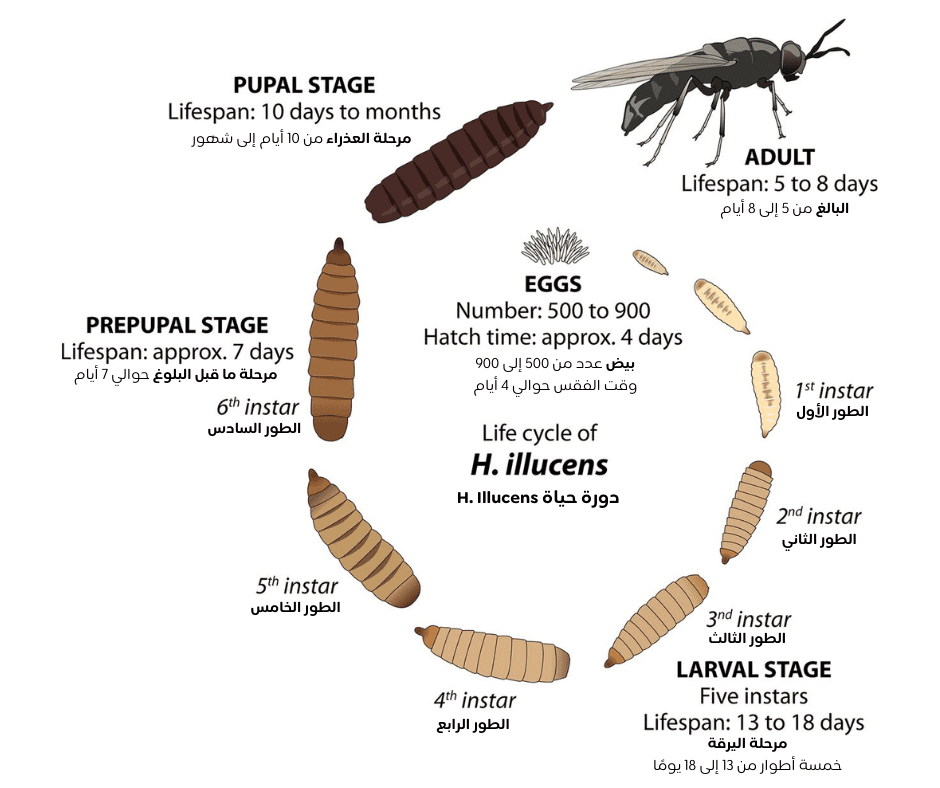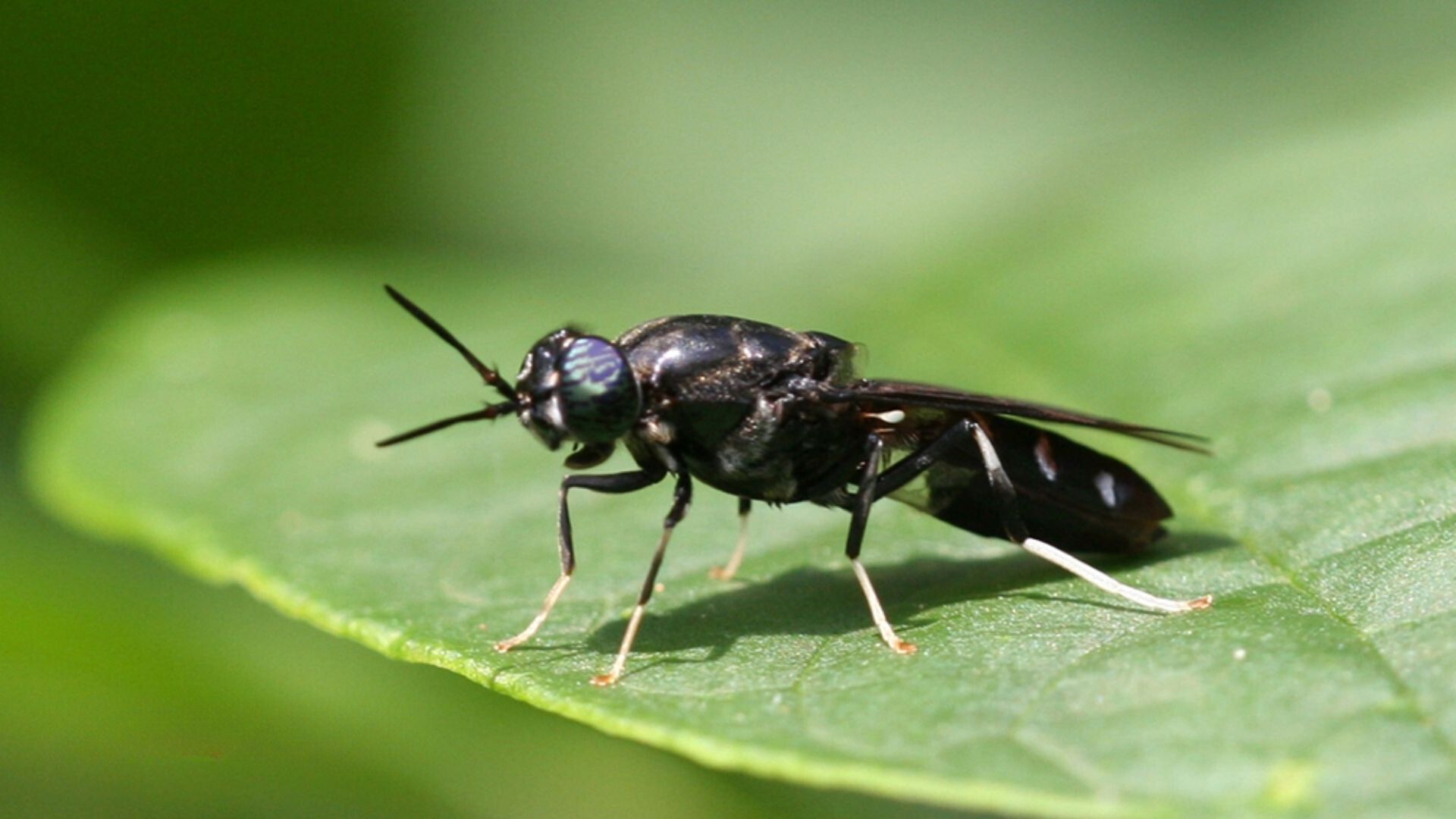The solution?
Numerous research have recently emerged on the Black Solider fly “BSF” Hermetia illucens in addition to ways to benefit from it for fodder and fertilizer minus the negative impact on the environment or humans. The larvae of this fly are able to devour large amounts of waste, reproduce in large numbers, and adapt to changing weather conditions – the remaining part of this article explains the importance of these characteristics and their contribution to the role of the insect.
Suitable climate
| The black soldier fly prefers a warm climate with temperatures of 25-27 degrees Celsius in a humid atmosphere. |
Nutrition
The larvae feed on the leftovers and excretion, which leads to a reduction in pollution. Therefore, the best food for larvae is a mixture of animal dung (which is animal droppings, containing undigested plant residues and often rich in minerals) with leftovers.<br>It is worth noting that 60% animal dung and 40% kitchen waste is the best in terms of larval development and growth
Life cycle
The life cycle of this insect begins with the full insect consisting of a male and a female. When mating takes place, eggs are laid and number ranges between 320-1000 eggs. The eggs hatch after three or four days, and the adult insect dies after laying the eggs as it has exhausted all its fat, shortly after laying eggs.
The larvae are very small and can hardly be seen as they begin to grow. In the last week of growth, one larvae can eat 50 times its body weight.
When the larvae prepare to pupate, they turn from beige to black, and the flies emerge from the cocoon after 4 to 5 days afterwhich the life cycle begins again.

Benefitting from this insect
Black soldier larvae rank among the best proteins for poultry, fish and reptiles, because the larva itself contains 40% protein and 10% fat. Therefore, it is considered an added value to the feed, which provides protein and reduces the costs of the feed.
On the other hand, we find that some farmers refuse to feed their animals living organisms. The solution is to cook the insects for about three minutes, then dry them in the sun to finally feed them to animals.
Another benefit of this insect is the possibility of using its waste to fertilize plants in their early growth stages. This provides an enzyme that strengthens plants and leads to greater resistance to diseases. In addition, the insect can be used as an effective fertilizer rich in essential nutrients to plants.
Does it sting or bite?
The black soldier fly does not sting or bite. Therefore, it does not affect health like mosquitoes and house flies. However, it is a source of noise that may cause disturbance to nearby residents.
It should be noted that the life cycle of flies is very short. So if gotten out of the farm, it cannot pose a threat to humans or the environment.
In conclusion, the black soldier fly is one of the unknown soldiers yet to be incorporated into environmental projects. If well invested in, such activities can be an alternative solution to burning and accumulating waste that pollutes the environment.

